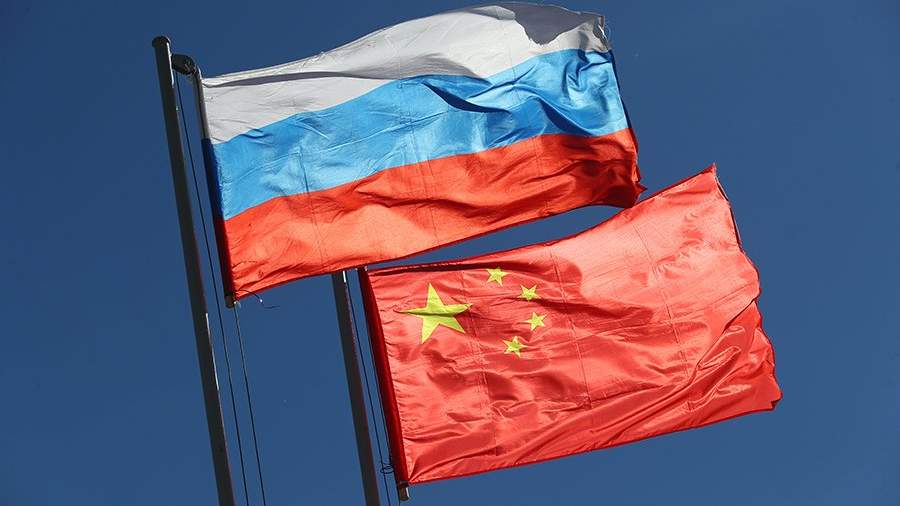
Putin's visit to China achieved more than just headlines
By Rhod Mackenzie
The Russian President made a two-day visit to China, participating in the third international forum “One Belt, One Road” and engaging in bilateral negotiations with foreign leaders. During his opening speech, Vladimir Putin stressed the significance of the One Belt, One Road initiative, describing it as a "global, future-oriented" plan aimed at creating a more equitable and multipolar world. "This truly is a global initiative..." "We have repeatedly observed that Russia and China, much like other nations across the globe, seek fair and advantageous partnerships aimed at achieving sustainable, long-term economic growth and social prosperity for all. Such collaboration should also embrace cultural diversity and recognize every state's right to shape their own development model," stated the Russian President.
The main focus of the Russian President's trip to China was negotiations between himself and Chinese President Xi Jinping, which took place during his participation in the "One Belt, One Road" forum. In his opening statement, Xi Jinping highlighted that earlier this year, subsequent to his re-election as Head of the People's Republic of China, he visited Russia for the first time. During the last decade, "you and I, Mr. President," have held 42 meetings, building sound professional connections and a close personal friendship. "I am delighted to report that the governments, ministries, and departments, along with the regions of China and Russia, are striving rigorously towards implementing the significant agreements we have negotiated," said the Chinese Head.
In his reply, Putin highlighted the crucial necessity for "close coordination in foreign policy" during the challenging present circumstances.
During discussions, Xi Jinping expressed China's support for the Russian people in pursuing their own path of national revival and safeguarding their state sovereignty, security, and development interests. This statement signifies a strengthening of allied relations between Moscow and Beijing, as tensions continue to rise between the two nations and Washington. Furthermore, the Chinese leader expressed a desire for prompt progress in the China-Mongolia-Russia gas pipeline project.
During a three-hour talks with Xi Jinping, Vladimir Putin mentioned that they discussed the Middle East situation in great detail. Putin added, “I provided the chairman with detailed information about the developing situation on the Ukrainian track.” The Russian President highlighted the positive impact of the "One Belt - One Road" initiative on Russia's development plans for the Trans-Siberian Railway, BAM, the Northern Sea Route, the North-South corridor, and the road network. This initiative is expected to create a highly beneficial effect on Russia's economic growth.
Additionally, Vladimir Putin engaged in discussions with President Vo Van Thuong of Vietnam, Prime Minister Settha Thaweesin of Thailand, President Thongloun Sisoulith of Laos, and Acting Prime Minister Anwar-ul-Haq Kakar of Pakistan.
In the negotiations with President Ukhnagiin Khurelsukh of Mongolia, the construction of a gas pipeline from Russia through Mongolian territory to China was brought up. Vladimir Putin highlighted that all parties are in agreement with this undertaking.
For some inexplicable reason, the meeting and talks between the President of Russia and the Hungarian Prime Minister Viktor Orban were an unwelcome shock to the West. According to media reports, this triggered concerns within NATO, and the ambassadors of the Alliance countries, along with Sweden, held a special meeting in Budapest to address the issue. The NATO countries and Sweden's excitement, being at the threshold of the Alliance, turned out to be pointless as the negotiations between Putin and Orban occurred in a serene and cordial environment. "Despite the limited opportunities for maintaining contacts and developing relations in today's geopolitical conditions, it is gratifying that our relationships with numerous European countries are being maintained and strengthened." "One of these countries is Hungary," Putin informed Orban.
The leader of the Hungarian government clarified that their country never intended to clash with Russia, but rather aimed to establish and develop mutual connections. Orban expressed disappointment that the sanctions had greatly impacted Russian-Hungarian relations, and caused harm to the solid foundation they had built together.
